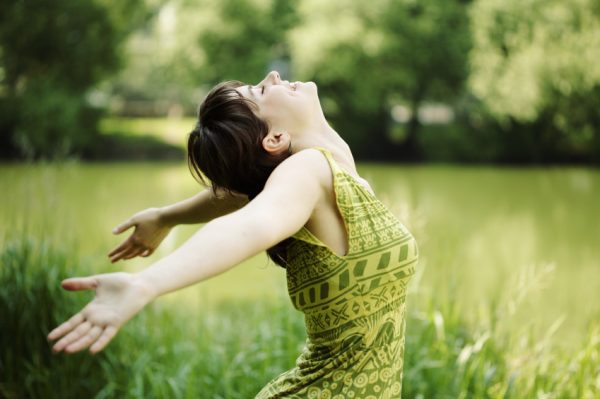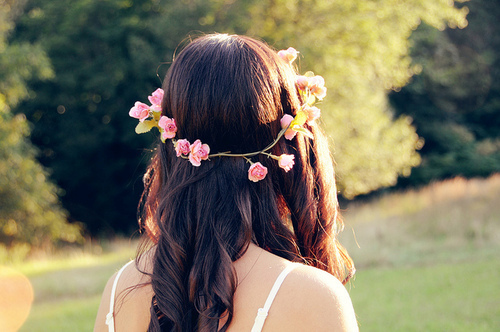How To Prevent Hair Loss The Natural Way

How To Prevent Hair Loss The Natural Way
There seems to be a lot of work that has to consciously and necessarily need to be done
throughout one’s life in order to prevent hair from falling out. Some may argue that it’s natural,
and that losing hair is merely a part of age. Yes, the older you get,
the more likely it is for your hair to gain a tendency of dropping,
but that doesn’t really have to be the case.
The trick here is knowing how to care for your hair, and luckily for you,
I’m here to tell you just how.
It starts with the basics; hair care at its simplest is knowing how to properly clean your hair.
It goes without saying that it is mandatory to regularly wash your hair.
Of course, this is just standard, basic hygiene, but it’s important to understand that aside from
just cleaning your scalp, washing your hair reduces risk of infection that damages hair
and makes it drop. The important part of this is knowing what sort of shampoo to use.
Steer clear of strong shampoos, and stick to milder ones.
How can you tell which ones are mild and which ones are strong?
All you have to do is turn the bottle of shampoo around to check through the ingredients.
If you see things like sulfate or sulfonate listed in there, then don’t use it.
But if after the main ingredient listed (usually water), you see substances
like Glucoside or Isethionate, then that’s a product you want to be using.
And in addition to preventing hair fall, mild shampoos will even make your hair have more volume.
What about conditioner?
The best conditioners have ingredients like polyquaternium and silicone, so look out for those.

The next thing you’ll want to know about shampoo is how to choose theright type for your hair.
Think about whether you have dry or oily hair, thick or thin hair, coloured hair,
hair with dandruff, or just average normal hair, and buy products meant for it.
You can try out a few different shampoos just to see which one best suits you,
and once you find one that works, stick to it. But it’s important to look out for scams as well.
If you have damaged hair and are searching for products to match it, avoid buying “damage-repair” shampoos or conditioners that are enhanced by proteins.
This is because these protein products only give a temporary illusion of smooth,
volumised hair; they don’t actually repair any damage in the long-term.

Now, moving on from bath items, but still in the topic of general hair care,
let’s talk about combs and brushes. You may be thinking, what on earth does a
hair brush have to do with hair fall? Aren’t all brushes the same?
Well, firstly, the way you brush your hair can have a huge impact on the health of your hair,
and secondly, no, they’re not all the same!
You don’t want to go for hard, plastic brushes that you can get from any pharmacy.
Opt instead for a brush made from natural fibers that is soft and gentle for your strands.
You don’t want to use a brush when your hair is wet, though, so go for a comb instead after showers.
It’s also important to note that the best way to brush your hair is not from
the top of your scalp to the ends,
but from the underside of the hair towards the outside.

Massages are also a great way to prevent hair loss, as it causes blood to
flow better through the skin on your scalp, which in turn increases the absorption of nutrients.
You can choose to just rub your head with your hands to boost circulation,
but you could also spice it up by using oils for your massages.
A lot of oils have properties that help with hair growth.
To help you get started, here’s a bunch of helpful ones you can start out with: lavender oil,
rosemary oil, olive oil, coconut oil, geranium oil, and almond oil. But do note that the
only oils you can use on your scalp without diluting them first are herbal oils,
like the ones I’ve suggested. If you plan to use an essential oil, find out
how to dilute it with other oils first. If massages aren’t really your thing,
you can apply different natural items onto your hair, leave them overnight in a shower cap,
and wash them out in the morning.
You can do this with natural juices (orange juice, garlic juice, ginger juice, etc.)
or green tea (which only needs to be left in hair for one or two hours).
Whichever you prefer, it’s sure to have benefits for your hair,
even if it may feel a little odd at first.

Want to know a very natural, unavoidable factor that causes hair loss? It’s stress.
Stress is a truly awful thing; it not only tugs at your emotions and makes
you feel frustrated and grumpy, it also causes hair fall.
Even worse, you can’t completely annihilate stress from your life because it’s a standard part of it,
so you’ll have to learn to navigate around that.
Instead of striving to remove stress, strive instead to manage it.
Exercise, even just a little bit of it, can help as it releases endorphins,
which are feel-good hormones, throughout your body.
This allows you to relax. You could also try meditation or yoga,
and if you haven’t got time for either, then learn a few deep breathing exercises.
Deep breathing is an instant, automatic relaxant that can reduce stress by a tenfold.
Get on top of stress, and your hair will continue to flourish.

There are, of course, other factors that come into play with preventing hair loss,
like maintaining a good diet (which was discussed in a previous article),
noticing any increases in hair fall, and regular visits to a doctor.
Nonetheless, these are the simplest, most straightforward tips to
follow to ensure that your hair is cared for the natural way.
Follow these steps, and your hair will be sure to thank you.
Written by
eunice
writer
Global Hair solution
